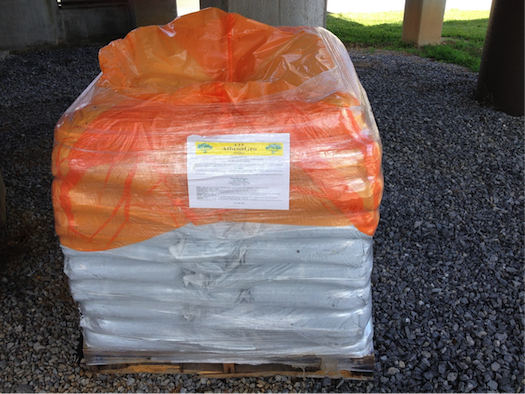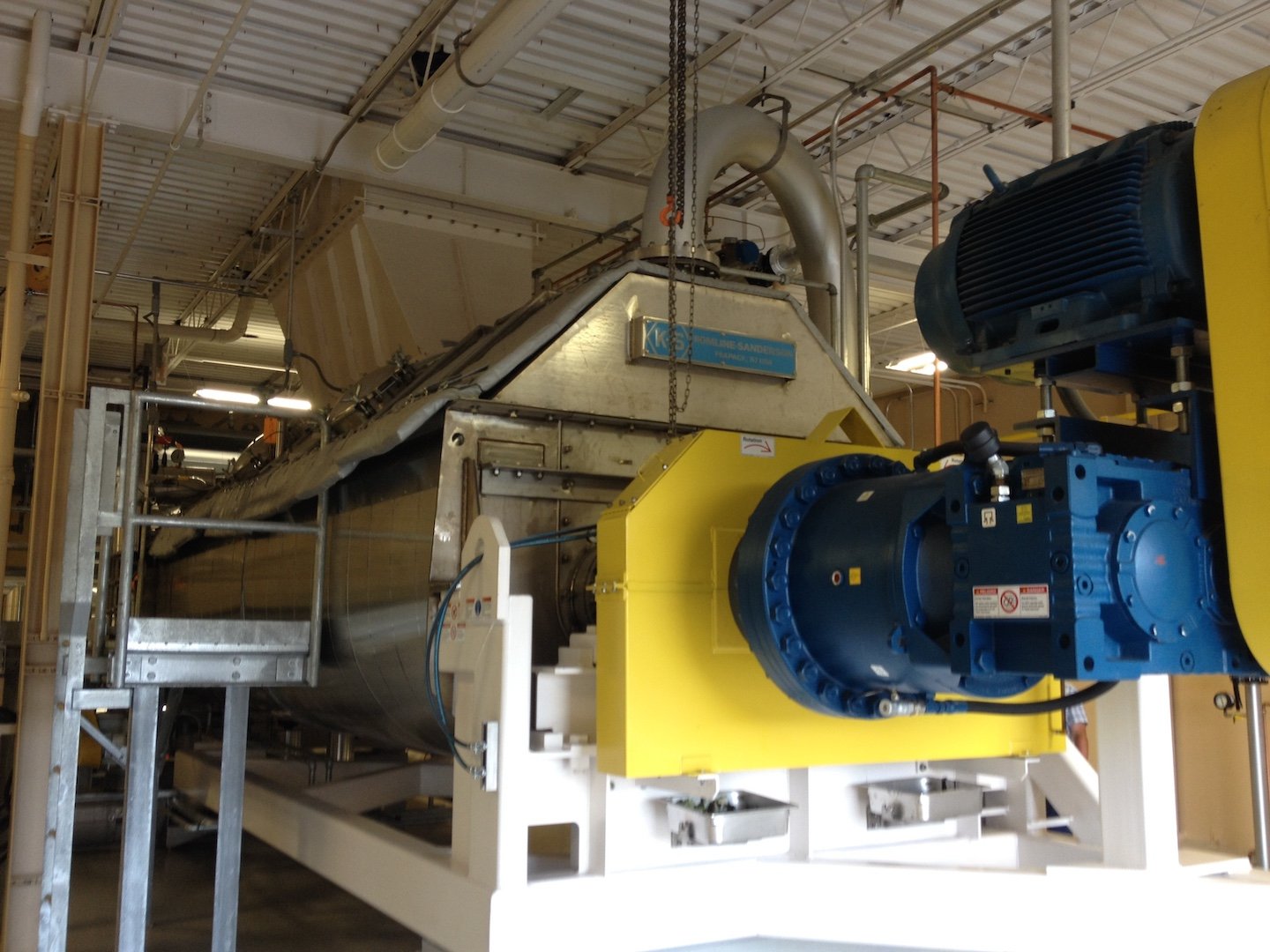State Data
Confidence in data for this state:
MODERATE
2018 data unless noted.
Definitions
Terms used on this website and in data sets are defined & discussed here.
Cookeville lime treatment and conveyor. Photo courtesy of Rob Lantz, PE, Smith Seckman Reid, Inc., Nashville, TN.
Cookeville’s limed biosolids. Photo courtesy of Rob Lantz, PE, Smith Seckman Reid, Inc., Nashville, TN.
“While it would be cheaper to go to a landfill, we have prided ourselves to have 100% of the biosolids go to beneficial reuse. ”
Fenton dryer in Athens, TN. Photo courtesy of Rob Lantz, PE, Smith Seckman Reid, Inc., Nashville, TN.
“AthenaGro” fertilizer, bagged and ready in Athens. Photo courtesy of Rob Lantz, PE, Smith Seckman Reid, Inc., Nashville, TN.
Maryville’s WRRF, with ATAD and biosolids composting. Photo courtesy of Rob Lantz, PE, Smith Seckman Reid, Inc., Nashville, TN.
State Statistics Dashboard
A WRRF in Nashville, TN, where “Music City Gold” fertilizer is made. Photo courtesy of Rob Lantz, PE, Smith Seckman Reid, Inc., Nashville, TN.
State Summary
● In Tennessee, two-thirds of biosolids are beneficially used through bulk application of Class A or B biosolids to farmland or reclamation sites as soil amendment, or through distribution of exceptional quality (EQ) products for use in landscaping, agriculture, yards, parks, and more. Treatment methods to reach Class A or EQ quality include composting (Maryville, Smyrna, Sevier County), heat drying (Nashville, Athens, Newport), advanced alkaline stabilization (McMinnville, Gallatin, Dickson, Cookeville), and autothermal thermophilic aerobic digestion (ATAD – Lebanon). Biosolids not beneficially used are disposed of at landfills or surface disposal sites. No TN solids are incinerated.
● The Department of Environment & Conservation (TN DEC) oversees biosolids management. Tennessee’s biosolids rule (0400-40-15) mirrors the federal rule, 40 CFR Part 503. TN DEC issues general and individual permits for land application of non-EQ biosolids through a process that requires submission by the biosolids preparer or land applier of a Notice of Intent and a Land Application Plan. Class A EQ biosolids are exempt from end use and site restrictions. Nitrogen is the basis for the agronomic loading rate for land application. A unique feature of TN regulations is that some regulatory requirements are reduced if a biosolids program is operated under a formal Biosolids Management System (Environmental Management System) certified by the National Biosolids Partnership. Chattanooga and Knoxville are examples of NBP-recognized programs.
● Septage can be land applied if requirements are met (state rule 0400-48-01.20), but preference for septage disposal is for treatment at water resource recovery facilities (WRRFs), and that’s the dominant practice. Roughly 15 septage disposal sites have been permitted for use by certain septage pumpers as an alternative to hauling to a WRRF. The state lists 122 septage haulers operating in TN.
● The trends in biosolids recycling in TN in 2018 - 2022 are continued interest and a slow increase in beneficial use of biosolids, with new and improved solids treatment processes, such as heat drying at medium-sized WRRFs. The pressures on biosolids management include:
Landfill Capacity – Middlepoint Landfill (Murfreesboro, TN) is a major disposal site for middle Tennessee biosolids. They are nearing capacity, and there has been public pressure to restrict expansion of the facility. This may well reduce one significant landfill option for wastewater solids from WRRFs in the region.
Odor Concerns – There have been instances where public and media have reported odor concerns at biosolids land application sites. This has resulted in the need to increase management practices.
● Some notable biosolids projects in TN include the installation of thermal hydrolysis in Franklin (commissioning in 2022); two gasification facilities constructed in the 2010s – in Lebanon and Covington – which are projects by Aries Clean Energy and the first of only a few successfully operating gasifiers in North America.
Gasifier in Lebanon, an Aries Clean Energy Project, one of two in TN. Photo courtesy of Rob Lantz, PE, Smith Seckman Reid, Inc., Nashville, TN.
Biosolids dryer in Newport. Photo courtesy of Rob Lantz, PE, Smith Seckman Reid, Inc., Nashville, TN.









